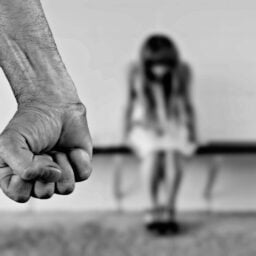INTRODUCTION
Numerous individuals are affected by regrettable stigma and biases related to mental health issues. Those with mental ailments are generally very regularly exposed to these negative stigmas. These perspectives can prompt isolation, which might be the reason why those experiencing mental problems are so ineffectively focused on and regularly don’t look for treatment. The Stigmas that plague mental disease are not entirely obvious. We don’t comprehend a great deal about mental ailments and that produces obliviousness. We are simply starting to comprehend these unpredictable diseases are still generally not that efficient at treating them?
One of the major causes of death among those whose age is between 15 to 29 is suicide in India.[1] The condition of mental health is so bad in India that the number of suicides daily was staggering 381 in 2019[2]. Suicide can be due to various reasons or mental illnesses like depression, obsessive-compulsive disorder, and anxiety. It can be really hard to know the exact reason for one taking his own life.
So it can be said that mental health remains a problem in India and that too a big one considering numbers. There remains a stigma surrounding mental health in India. Especially Section 309 of IPC[3], which prosecutes any person who attempts to commit suicide with imprisonment or fine or both, further stigmatize mental health by prosecuting the one who requires support. Some people are against this while some are against the act.[4]
PEOPLE FOR IT
“Right to life does not include the right to die” is the statement from the case Gian Kaur v. the State of Punjab[5] is usually used by those who support section 309. It is also believed to be against Hindu belief, that killing of oneself or suicide is against the path of enlightenment[6] but there are certain cases in which suicide is not considered to be wrongful not in Hinduism but in some other religions as well including Jainism, Buddhism.
Another thing that people who favour section 309 of IPC, use is that decriminalizing it may increase the number of suicides or may send a wrong message. But there exist no sufficient reliable data to prove this statement. For 10 years Canada suicide rates were observed after the decriminalization but there was no increase in suicide rates[7]. The increase in the suicide rates when 7 countries were observed also is not reliable enough as it could be possible that there was more reporting of suicide than before due to the fact that it became decriminalized and there existed no legal trouble.
PEOPLE AGAINST IT
Meanwhile, people against the provision usually refer to the case of Maruti Shripati Dubal v. State of Maharashtra[8] where the provision was declared unconstitutional. Repealing the provision will also help with the stigma surrounding mental health.
Repealing will also make sure that the person attempting to commit suicide gets the care and help that is required, as many hospitals and health care institutes usually don’t prefer to deal with such cases reason being the stigma as well the legal trouble that may arise later due to such cases. Usually, hospitals don’t want to get in legal trouble that might arise while treating such a patient, so the patient and even his or her family may not receive the support which is needed.
This will also help improve the data as in most of the cases suicide cases are not reported, this data can further help for decision making and allocation of funds for mental health and suicide prevention.
CONTRADICTION WITH MENTAL HEALTHCARE ACT
Section 309 not only stigmatizes mental health but section is also in contradiction with Section 115[9] of the mental healthcare act 2017, in which it is assumed until otherwise proven that the person attempting to commit suicide is under stress and the person should be given proper care by the government. Section 115 of the mental healthcare act is a non-obstante clause that negates the effect of 309. But this is only when stress is there.
WORLDWIDE VIEW
Interestingly enough in England suicide has been decriminalized in 1961[10], but the colonial rule still exists in India to this day. In many other countries like Canada, Germany, Norway, Sweden, and many others the act of suicide has been decriminalized. In Asia countries like Indonesia, Thailand, Sri Lanka, etc. it has been decriminalized. In India, it also to some extent is legalized with the help of the Mental Healthcare Act 2017 [11]but only in cases where stress is there. If not then Section 309 of IPC is still applicable.
PAST ATTEMPTS OF REPEALING
In the past attempt has been made to repeal Section 309 of IPC. In 1978, the bill repealing the Section was even passed in the upper house of the parliament but failed to pass in the lower house as the parliament was dissolved[12]. The 42nd report of the Law Commission of India also stated that the provision of criminalizing attempts to suicide should be deleted from the Indian penal code. Even in 2014, the matter was brought up in the Rajya Sabha[13] regarding the repealing of Section 309 of the Indian Penal code but the matter couldn’t reach its destination and was dropped.
CONCLUSION
Section 309 of the Indian penal code has been severely outdated. Even the Britishers who made this have moved on with changing times and decriminalized attempts to suicide. India should also consider repealing it. This law further stigmatizes mental health issues and also prevents the victim to receive care and support in the golden hours. Suicide attempts should be decriminalized, certain cases like blackmailing can be penalized. We need to realize that mental illness is just as bad as physical illness. Just like a person who has a physical ailment needs to be taken care of the same way a person suffering from mental illness needs to be taken care of without any prejudice or discrimination. Repealing this provision will be one step closer to helping people who have mental health issues.
Author(s) Name: Prajanay Vyas (Student, Himanchal Pradesh National Law University, Shimla)
References:
[1] Kalpana Srivastava, Kaushik Chatterjee, and Pookala Shivaram Bhat, ‘Mental health awareness: The Indian scenario’ (2016) 25(2) IPJ <https://www.ncbi.nlm.nih.gov/pmc/articles/PMC5479084/> accessed 17 July 2021
[2] Press Trust of India, ‘Average 381 Suicides Daily In India In 2019: Data’ NDTV (September 02, 2020) <https://www.ndtv.com/india-news/average-381-suicides-daily-in-india-in-2019-data-2288951> accessed 17 July 2021
[3] The Indian Penal Code 1860, s 309
[4] Rajmohan Unnithan, ‘A case to decriminalise suicide’ The Hindu (June 21, 2021) <https://www.thehindu.com/opinion/op-ed/a-case-to-decriminalise-suicide/article34893959.ece> accessed 17 July 2021
[5] Gian Kaur v State of Punjab 1996 SCC (2) 648
[6] Rajeev Ranjan, Saurabh Kumar, Raman Deep Pattanayak, Anju Dhawan,Rajesh Sagar, ‘(De-) criminalization of attempted suicide in India: A review’ (2014) 23(1) IPJ <https://www.ncbi.nlm.nih.gov/pmc/articles/PMC4261212/> accessed 17 July 2021
[7] Ibid 6
[8] Maruti Shripati Dubal v State of Maharashtra 1987 (1) BomCR 499
[9] The Mental Healthcare Act 2017, s 115
[10] Neeleman J., ‘Suicide as a crime in the UK: legal history, international comparisons and present implications.’ (1996) 94(4) APS <https://pubmed.ncbi.nlm.nih.gov/8911560/> accessed 17 July 2021
[11] Mental Healthcare Act 2017
[12] Shemin Joy, ‘People who attempt to die by suicide continue to face criminal charges under Section 309’ Deccan Herald (Nov 28 2020) <https://www.deccanherald.com/national/people-who-attempt-to-die-by-suicide-continue-to-face-criminal-charges-under-section-309-920942.html> accessed 17 July 2021
[13] Mohamed Thaver, ‘Sec 309 IPC: Questions and issues around an archaic Section of the law’ The Indian Express (June 23, 2020) <https://indianexpress.com/article/explained/sec-309-ipc-questions-and-issues-around-an-archaic-section-of-the-law-6468338/> accessed 17 July 2021
















